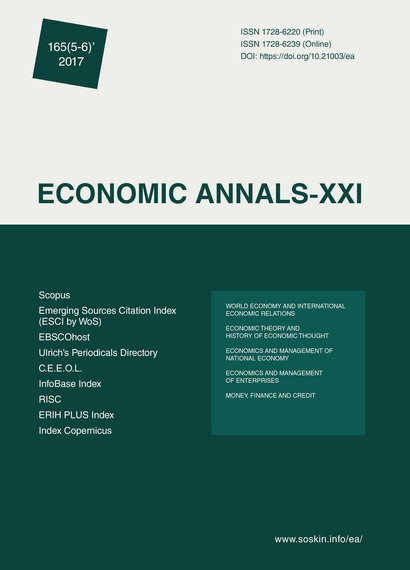Strategic scenario of an open source of sustainable development for the food system
Strategic scenario of an open source of sustainable development for the food system
Author(s): Michael Koniordos, Galyna Matvienko-Bilyaeva, Svitlana StrapchukSubject(s): Economy, Socio-Economic Research
Published by: Institute of Society Transformation
Keywords: Food System; Strategic Scenario; Sustainable Development Scenario; Market Relations; Resource-efficient Consumption; Food Consumption; Ukraine; Greece;
Summary/Abstract: Introduction. The food system requires some transformational changes which should take into account the problem of population growth, uneven distribution of consumer resources and threatening impact of the intensive agricultural development on the environment. The purpose is to study the characteristics of the developed strategic scenarios of the food system and identify the ways and directions in the rational combination of market relations with efficient resource consumption at the national level in the implementation of the scenario of open source of sustainable development for Ukraine and Greece. Results. The article deals with the present-day food system of Ukraine, its benchmarks and opportunities to solve social, economic and environmental problems and achieve sustainable development. The authors have studied possibilities and principles of agricultural producers, as well as coordination of efforts by the government and society in choosing an open source of sustainable development scenario of the national food system. Directions to promote international cooperation and implementation innovations in the agricultural sector through a combination of close market ties with the efficient and economical resource consumption have been established. Possible directions to intensify close links between the markets for certain agricultural products and prospects of import substitution have been analysed. Practical ways to shift the demand toward economical use of food resources through measures aimed at promoting healthy lifestyles, culture of healthy food consumption, reducing the availability of animal protein and foods high in salt, sugar and fat have been grounded. Potential ways to reduce urban migration through new opportunities of agricultural sector in contrast to global trends of rapid urbanisation and the experience of other countries as to the growing prestige of the farmer’s work through cooperation with international organisations and free access to capital have been analysed. Conclusions. It has been found out that certain strategic scenarios of global food systems can be recognised in the early stages and best used at the national level. The considered algorithms of actions must be adapted according to the existing conditions at the tactical level and provide economic, environmental and social efficiency.
Journal: Економічний часопис - ХХІ
- Issue Year: 165/2017
- Issue No: 5-6
- Page Range: 56-59
- Page Count: 4
- Language: English

